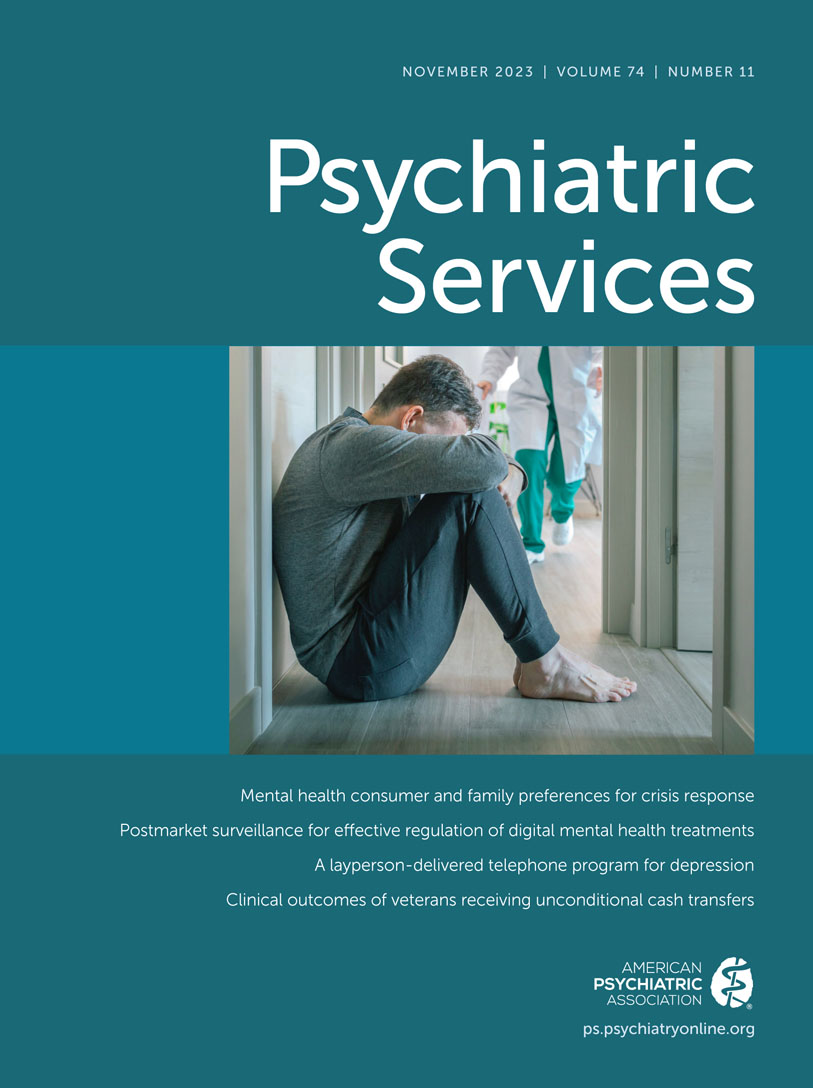Oral Health Recovery: A Peer Support Specialist–Led Health Education Program for People With Serious Mental Illness
Abstract
Oral health affects whole health and quality of life. This is especially true for people with serious mental illness, a population with heightened risks for oral disease and needs for oral treatment. Studies have previously shown the effectiveness of peer support specialist (PSS)–led wellness interventions. Oral health educational materials and a health education approach were collaboratively developed by a multidisciplinary team and then implemented at one community mental health center and three PSS-run drop-in centers. PSSs provided health education and linked consumers to dental care. Program evaluation (N=41 respondents) indicated the approach’s acceptability, feasibility, and sustainability.
Access content
To read the fulltext, please use one of the options below to sign in or purchase access.- Personal login
- Institutional Login
- Sign in via OpenAthens
- Register for access
-
Please login/register if you wish to pair your device and check access availability.
Not a subscriber?
PsychiatryOnline subscription options offer access to the DSM-5 library, books, journals, CME, and patient resources. This all-in-one virtual library provides psychiatrists and mental health professionals with key resources for diagnosis, treatment, research, and professional development.
Need more help? PsychiatryOnline Customer Service may be reached by emailing [email protected] or by calling 800-368-5777 (in the U.S.) or 703-907-7322 (outside the U.S.).



